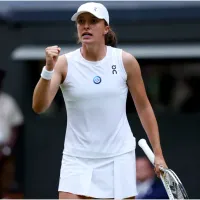In a move that reverberated through the tennis world, the organizers of the Prague Open have announced the exclusion of Russian and Belarusian players from the upcoming tournament. The decision comes in the wake of heightened political tensions surrounding the invasion of Ukraine by Russia, leading to the Czech government’s ban on athletes from these countries participating in sports events on Czech territory.
The contentious situation escalated further when a Russian player was denied entry into the country by authorities. Though the player’s identity has not been disclosed, Miroslav Malý, the tournament director, confirmed that she was the first participant with a Russian passport to attempt entry.

see also
Iga Swiatek Highlights a Similarity She Has With Novak Djokovic
Given the prevailing circumstances, the tournament organizers, in collaboration with the Women’s Tennis Association (WTA), took a proactive approach to prevent potential issues. They reached out to other Russian and Belarusian players who were slated to compete in Prague, urging them not to travel to the event for the sake of safety and diplomacy.
Impact on the Players
Aliaksandra Sasnovich, the Belarusian player, was set to compete in the singles category at the Prague Open. Unfortunately, she finds herself among the affected players due to the tournament’s restrictions. Similarly, three Russian players—Diana Shnaider, Polina Kudermetova, and Erika Andreeva—had planned to participate in the qualifying rounds but now face the disappointment of exclusion.
It’s worth noting that the WTA Tour does allow Russian and Belarusian players to participate in tournaments as neutral athletes, but the ongoing geopolitical tensions have prompted individual countries to enact their own measures to address the complexities of the situation. This has led to players from these nations navigating uncertain waters, with access to certain events contingent upon geopolitical developments.
This is not the first time such exclusionary decisions have impacted tennis tournaments. Recently, Russian player Vera Zvonareva faced a similar ban, preventing her from entering Poland for a WTA tournament in Warsaw. As political dynamics continue to shape the global sports landscape, the Prague Open serves as a stark reminder of how sports and politics often intertwine, raising questions about the broader implications for athletes worldwide.





